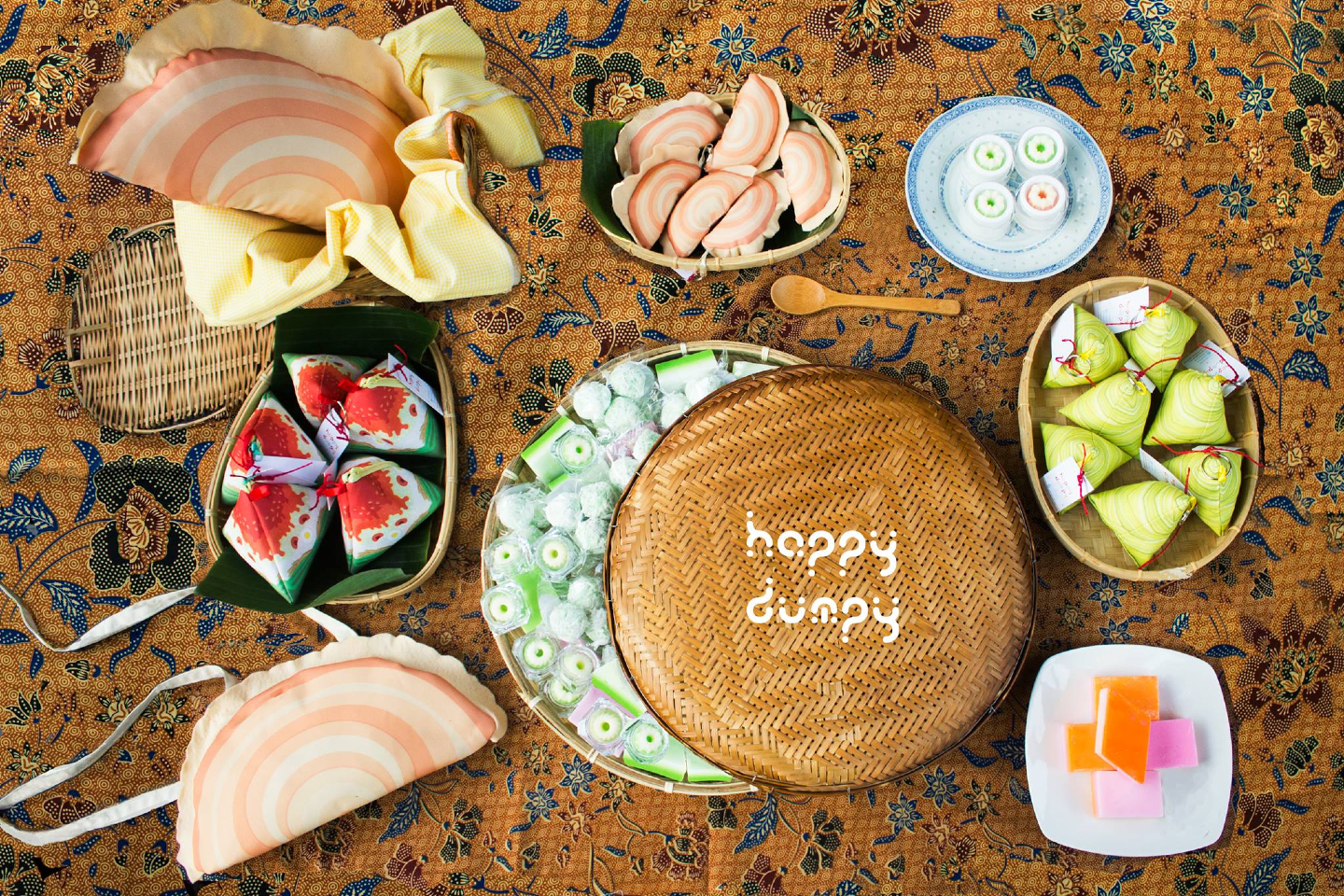
Shiyun wanted to share the stories behind well-loved Malaysian food in an interesting manner (Photo: Happy Dumpy)
Most Malaysians are familiar with kuih kapit or Love Letters — fragile crepe-like biscuits that are crispy and usually served during Chinese New Year. But many of us do not know how this tasty treat came about or how it got its name. While the biscuit itself originates from the Dutch egg roll wafer, it was introduced in Malaysia by the Peranakan Chinese. It adopted the moniker “love letters” as young people used to hide their secret notes between its folds, so that their chaperones would be none the wiser.
Having always had a curious mind, Jeslyn Ooi Shiyun was dismayed when she found out that so many people did not know the history or significance behind much of our local cuisine like she did. She was surprised by how few of her friends and family members were aware of the little stories that she had uncovered, such as the tale behind the Love Letters.
While working in advertising as a creative, Shiyun harboured hopes of starting her own entrepreneurial venture. When she saw a gap in the market, she started thinking: “Why don’t I do something different … something to do with our Malaysian culture. So, I decided I would create my own line of design products.”
20201005_peo_happy_dumphy_7_sam_1.jpg
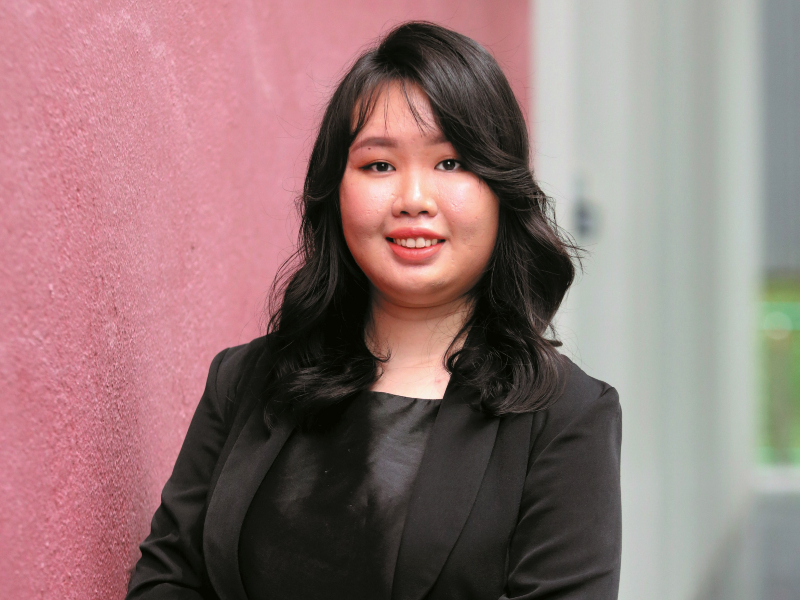
However, she did not want to have just the products alone — more important to her were the stories. “I’m a food lover and I love to learn about the different kinds of food. Each dish has a different story to tell. For example, angku kuih (red tortoise cake): Its shape, that intricate carving, is inspired by the tortoise’s shell. In Peranakan culture, it’s a sign of prosperity, good fortune and longevity. As Malaysians, we love food, but I thought about how to reveal the stories behind the food in an interesting manner,” she says.
The research of each of Happy Dumpy’s products was not just done online. Shiyun went to different villages and cities and spoke to the chefs and makers behind the country’s traditional cuisine to get their insights too. “That was to understand the stories behind the cuisine and also to get to know how to prepare the dishes. I found out what makes the food symbolic,” she explains. She dug deep to really identify the essence of the dishes, so that she could translate that into her products.
After the extensive research, she launched Happy Dumpy in early 2019 — the name of which was inspired by her first range of products, which were dumplings. That collection explored the different flavours of bak chang, a rice dumpling wrapped in bamboo leaves. She designed triangle-shaped pouches that resembled bak chang, with little keychains that represented the different flavours — such as Nyonya chang, kee chang, Cantonese chang and chilli chang — that fit inside the pouch. Each flavour came with a story about where it came from and the ingredients involved.
5.a_celebration_of_rice_from_various_culture-nasi_lemak_ketupat_teochew_hokkien_cantonese_and_nyonya_rice_dumplings_1.jpg
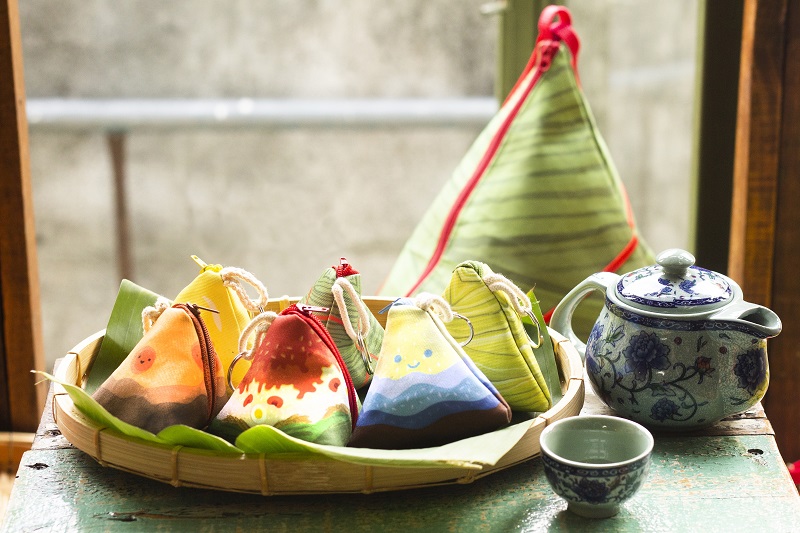
Shiyun sold her first dumplings at the Makers & Co art market where she decorated her stall to resemble a regular food stall, placing her bak chang in baskets or hanging them in bunches. “The response was great! I actually didn’t expect that. People were saying that it was very creative and were buying my products for their friends and family. They said it reminded them of home. Tourists who enjoyed Malaysian food also really liked it. They got to know more about what they were eating,” she explains. She went to the market with 100 pieces and managed to sell them all.
Fuelled by the positive response, she expanded Happy Dumpy’s range to include more food. She began with a nasi lemak bungkus and then went on to include other food, from kuih and sweets to curry puff and Musang King durian. She made pouches, keychains and more, all complete with their respective stories. One of her main challenges was figuring out how to effectively sell her products, especially as her area of expertise lay in the creative side. Luckily, she was approached by creative bazaar platform Riuh to sell her wares at its space, and she continued to attend more bazaars and pop-ups.
Happy Dumpy’s products are first designed by Shiyun in great detail. She then has her patterns printed on polyester cloth, which she takes to a group of homemakers who sew together the pouches and keychains. “It’s a lot of work. I design everything myself. It’s not what you would get from a factory — it’s unique,” she says.
1.kuih_kapit_1.jpg
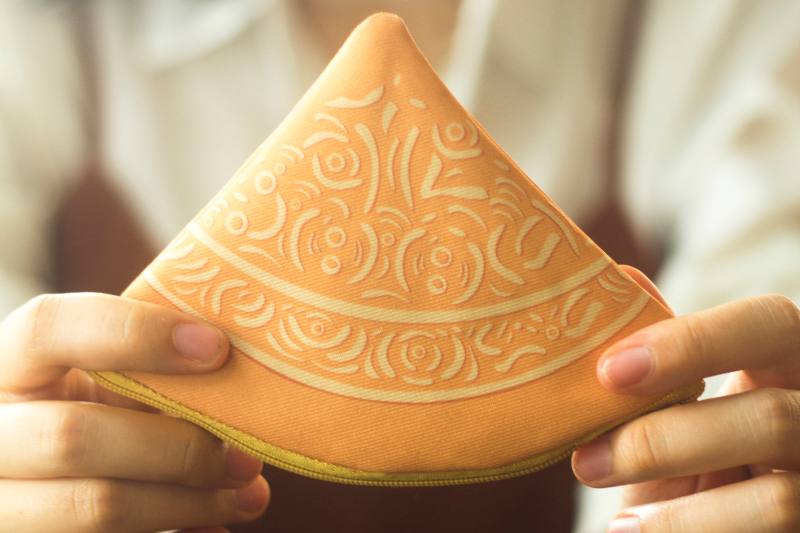
The brand has since been commissioned to create corporate gifts for companies such as Grab, the ride-hailing service provider. “For Grab, I designed its Christmas gifts. The usual things you see are Christmas trees and angels, so I started to think about how I could make it unique. What I did was, I made little Christmas tree coin pouches and localised all the ornaments — so there were different kuih, dumplings and other Malaysian food on the tree,” she says. Shiyun also designed Christmas socks and mini-gift boxes with Peranakan tile patterns.
As she developed her Instagram presence, she began receiving orders online. But most of her products were sold through bazaars, that is, until the Movement Control Order came into force. She is now focusing her efforts on social media.
From the feedback she received, Shiyun realised that her customers were using her food-shaped trinkets as gifts. “It was very touching. People would send their friends the nasi lemak pouch, for example, and write a message saying, ‘Hey, don’t worry. Let’s get a nasi lemak together once this is all over’.” To sustain her business during the trying times, she continues to promote Happy Dumpy’s products as the perfect gifts to show your loved ones you care with personalised messages.
childhood_dreams_memories_reversible_bag.jpg
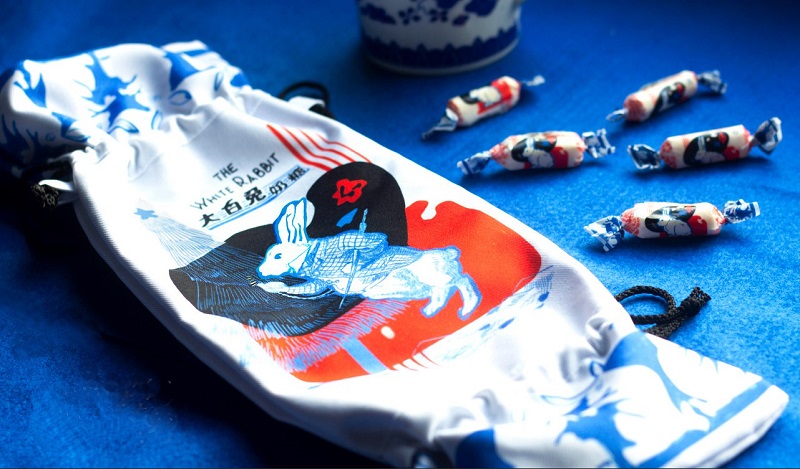
The brand now has larger bags that can be slung over your shoulder or used as a backpack. They come in the shape of angku kuih, bak chang and even the familiar childhood favourite, White Rabbit candy — the latter sold out very quickly.
Shiyun is currently developing an educational game for children to learn more about pollution, inspired by tinned food. She hopes to continue pushing the envelope and creating something new and informative. “I’m more on the creative side and I like to come up with innovative ideas. I don’t want to just make beautiful things. I want something with a twist, that makes our Malaysian culture come alive, and that appeals to the younger generation who don’t know enough about our history and culture.”
This article first appeared on Oct 26, 2020 in The Edge Malaysia.


